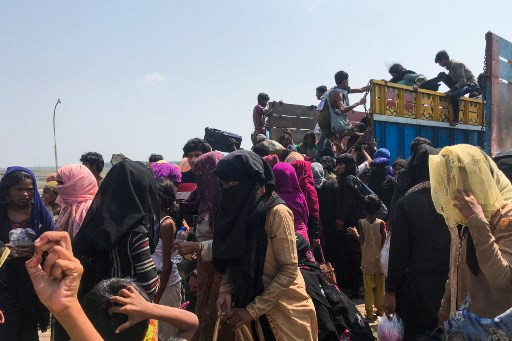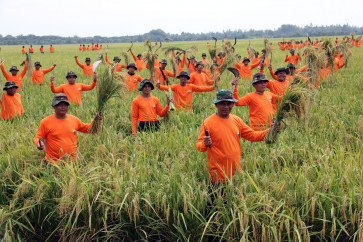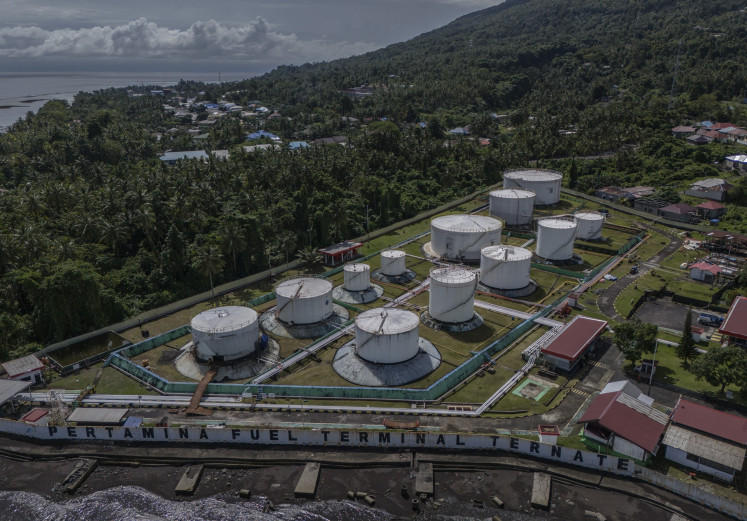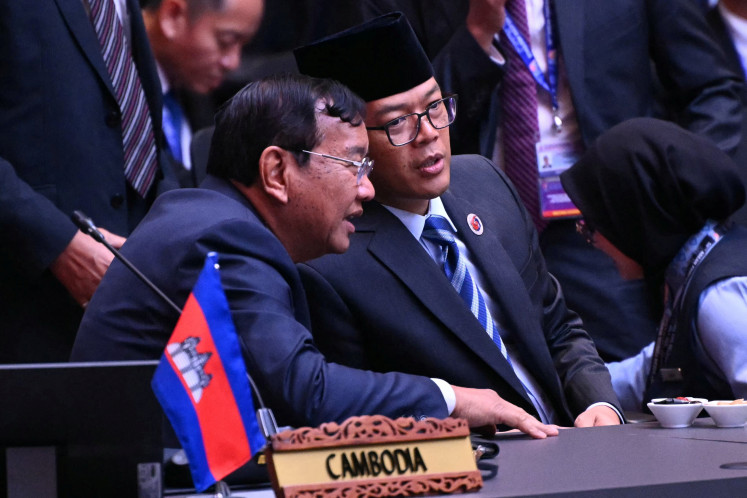Popular Reads
Top Results
Can't find what you're looking for?
View all search resultsPopular Reads
Top Results
Can't find what you're looking for?
View all search resultsRohingya women trafficked from Aceh refugee camp reunite with husband
Just over 100 refugees remain at the camp in Lhokseumawe on Indonesia's northern coast, well down from the almost 400 who arrived in separate boat landings between June and September last year.
Change text size
Gift Premium Articles
to Anyone
S
cores of Rohingya women missing from a refugee camp in Indonesia have been trafficked into Malaysia to reunite with their husbands, several sources have told AFP.
Just over 100 refugees remain at the camp in Lhokseumawe on Indonesia's northern coast, well down from the almost 400 who arrived in separate boat landings between June and September last year.
Neither local authorities nor the UN could account for the whereabouts of the women, who are feared to have enlisted traffickers to help them cross the Malacca strait into Malaysia.
"They talked with their husbands on the phone and made arrangements," said Namashah, whose own reunification with his wife and daughter was profiled in an AFP series on trafficking networks.
Relatively affluent Muslim-majority Malaysia is the main destination for Rohingya fleeing sprawling refugee camps in Bangladesh set up to house them after a bloody crackdown by Myanmar's military drove them into the poor South Asian country.
"We heard that some traffickers went to camp, took money and then helped the women escape," he added.
Some of the women had since called friends in the Lhokseumawe camp to say they had reunited with their husbands, Namashah said, but others may have fallen into more dire circumstances.
"Some are missing and we don't know what happened, whether they got there or were sold by traffickers," he added.
"We've heard some are with their husbands and others got caught," said Fatimah Binti Azizulhaq, 20.
At least 18 Rohingya from the Lhokseumawe camp and over a dozen suspected smugglers were recently caught by police several hundred kilometres south, in Medan city, a frequent staging point for illegal crossings into Malaysia.
A Myanmar military crackdown in 2017, which UN investigators said amounted to genocide, forced 750,000 Rohingya to flee across the border into the Bangladesh district of Cox's Bazar, where many ended up in sprawling refugee camps.
Thousands have since paid smugglers to get them out of Bangladesh, enduring harrowing, months-long sea journeys punctuated by illness, beatings by traffickers and near-starvation rations to reach Indonesia and Malaysia.
More than 100,000 Rohingya live on the margins of society in Malaysia, registered as refugees but not allowed to work, forcing the men into illegal construction and other low-paid jobs.
Some Rohingya men in Malaysia pay smugglers to bring over their families, or new brides from arranged marriages.
Another camp dweller, Asmot Ullah, said there were "parents crying in Bangladesh because they borrowed money to send their kids to Malaysia, but they reached Indonesia" instead.










